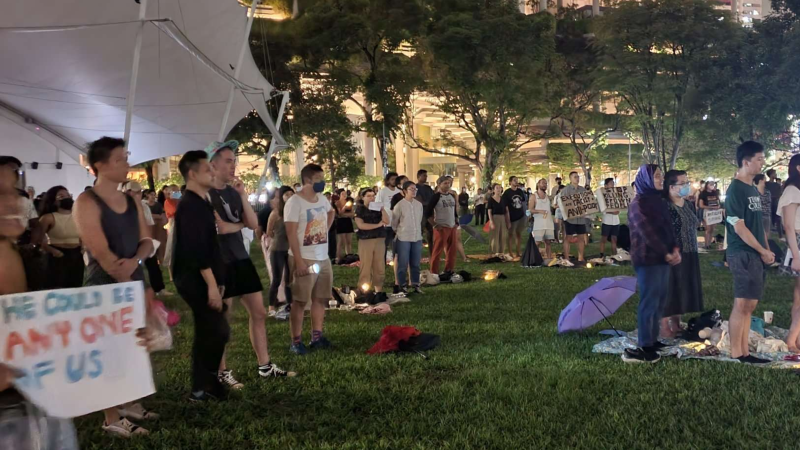The Ministry of Home Affairs has published a slew of statistics from studies conducted to defend its controversial use of the death penalty for serious crimes including drug trafficking.
Three different studies were conducted by the Ministry since 2018 to find out the views of residents in Singapore and in regional cities on the use of the death penalty in Singapore. They were conducted through face-to-face interviews with 4,000 Singapore residents and telephone interviews with more than 7,221 respondents from regional cities.
The Ministry has declined to disclose the names of those regional cities.
Key findings conclude that the majority of residents in Singapore and in regional cities support the use of the death penalty, agree that it is effective in deterring people from trafficking drugs into Singapore, think it is better than life imprisonment and are confident of Singapore’s criminal justice system to conduct fair investigations and trials.
The studies showed that the majority of respondents (more than 70%) agree that sentencing people to death is justified and should be used for the most serious crimes like murder, the use of firearms, and drug trafficking.
Those who did not approve of capital punishment were prompted further to choose between the discretionary death penalty or life imprisonment as a more appropriate sentence. The Ministry said some respondents preferred the former over the latter punishment.
One study also found that the majority agreed that the death penalty, whether mandatory or discretionary, is appropriate for the crimes of intentional murder (88.2%), use of firearms (82%) and drug trafficking (73.4%).
The details about the death penalty Singapore doesn’t want to talk about
In another study, they found that most Singapore citizens and permanent residents (78.2%) agreed that the death penalty is effective in deterring them from committing the said crimes. As for drug trafficking specifically, 78.9% believe that it deters people from trafficking large amounts of drugs into the city-state and 70.8% believed that it is more effective than life imprisonment.
Outside of Singapore, views from over 7,000 respondents in the six undisclosed regional cities are similar to the Singapore statistics. Close to 90% of regional residents believe that the death penalty scares people off from trafficking drugs into Singapore, and 82.5% believe that it is more effective than life imprisonment.
Also, a study found that the majority of respondents think that those under the death penalty were subject to fair and rigorous investigations and trials and that there were “adequate safeguards” to prevent wrongful executions.
The Ministry has conducted past surveys which showed similar facts that a large majority of Singaporeans believe the death penalty had deterred offenders as evidence of the public’s overwhelming support for the policy.
But a 2018 survey conducted by the National University of Singapore found that, when Singaporeans were presented with the details of typical cases where capital punishment would be legally required, few thought the death penalty should actually be applied in all instances, including drug trafficking cases. And most were either poorly informed about the death penalty, knew “nothing or little about it” or rarely even talked about it.
As much as these stats and numbers might prove useful in upholding the government’s stance on the death penalty, there are a lot of gaps in how and when these newly released surveys were conducted. There has been plenty of activism since 2018, and survey results might not reflect current attitudes. Furthermore, little has been shared about the groups and communities involved in these surveys, as evidenced by the government not even disclosing the regional cities involved in the surveys.
Other stories you should check out:
Entitled Singapore Bentley driver who almost ran over guard jailed, fined and banned
19-year-old Singaporean accused of murdering father remanded for psychiatric assessment



